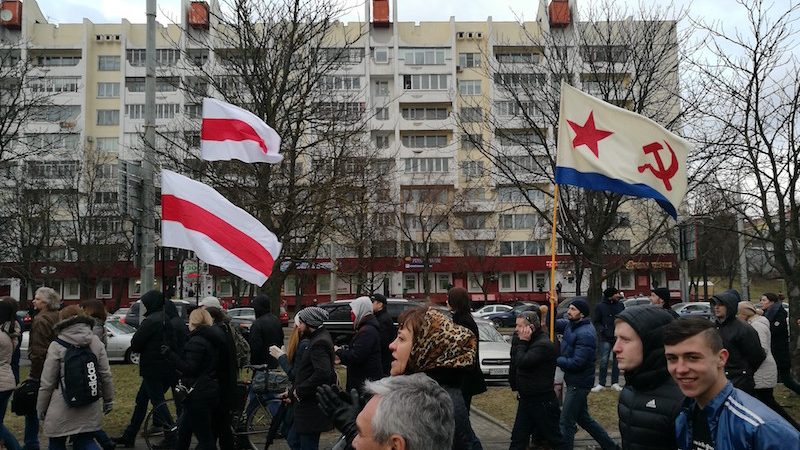on the crypto

Offline social media
Belarus cut off all internet connections on Sunday during the presidential elections. Major social networks and messaging sites including Viber, Telegram, Facebook, Twitter and Instagram have been temporarily inaccessible, as have local news outlets.
After weeks of tension, people took to the streets of the capital to protest the landslide victory of Belarusian President Alexander Lukashenko, who has been in power for 26 years. Opposition candidate Svetlana Tikhanovskaya disputed the results, claiming they were falsified.
Internet regulator NetBlocks detected the first network outages as early as 3:00 local time on election day. Social media restrictions began to escalate around 9am local time.
And as polls closed on Sunday, around 20:19 pm local time, NetBlocks observed a near-total drop in connectivity across the country. As of Monday 21:00 pm local time, many internet blocks remained active.
“Only Telegram works through some proxy servers; but even those get cut from time to time, ”said Nadia Venzhina of the Cyber Academy educational project in Belarus. “Those who had set up a virtual private network (VPN) in advance can still use Facebook and YouTube, but all commonly used VPNs are now unavailable and cannot be installed,” he added.
System overwhelmed
Belarusian President Lukashenko denied the internet shutdown, arguing that the attacks came from abroad, particularly from the UK, the Czech Republic and Poland. Leading Belarusian internet provider Beltelecom said it had noticed an increase in traffic from abroad as of August 8.
“Our systems have seen more cyber attacks on government agency websites and Beltelecom servers. This caused the overload of communication channels and the malfunction of our infrastructure, which led to the interruption of access to some Internet resources and services ", wrote the provider, promising to solve the problems by the end of the day, l '8 August.
Political unrest
Days earlier, in an interview aired on August 6, President Lukashenko said that it would be embarrassing for him if the Belarusians took to the streets on election day and that he would do everything in his power to curb protests, a Russian journalist reported.
The election protests were largely peaceful, but the protesters were violently pushed back by law enforcement. Tear gas and water cannons were used, and at least one person was reportedly injured by an explosive grenade, while another was hit by a police vehicle.
Thousands of protesters were arrested. Journalists from two Russian media outlets, Current Time and TV Rain, were denied accreditation and deported. Another Russian journalist, Maxim Solopov, a reporter from Meduza, was beaten and disappeared, Meduza wrote.
